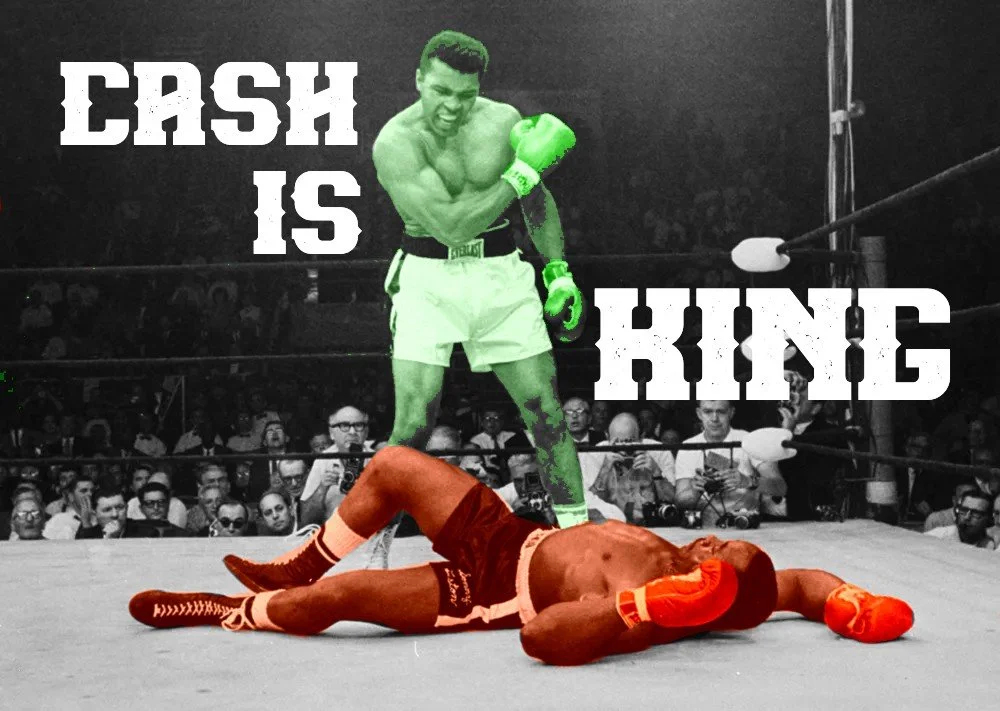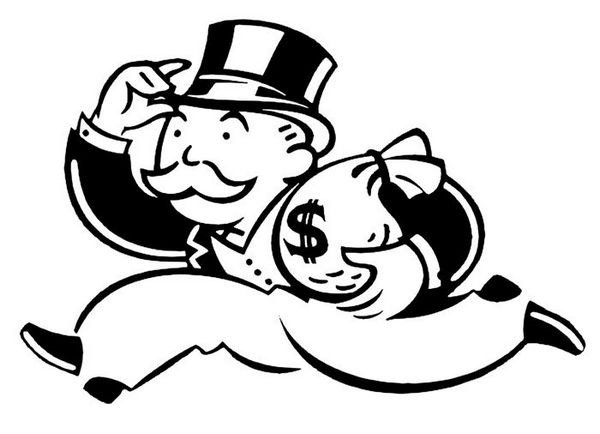How to Think Like an Investor (Part 2) - Cash is King
In order to think like an investor, you need to wrap your head around two major concepts: cash and cash flow. Before I discuss why cash and cash flow are so important, I need to lay some ground work around what a home actually is.
What is a home?
Financially, a ‘home’ that you buy is actually two things bundled together:
An asset that appreciates over time (though it requires maintenance to do so)
A liability, in the form of a mortgage, that must be paid back over time
The distinction is important to make because these can be manipulated separately to create the most long-term value and cash flow. They are valued independently and should be considered separately when thinking like an investor. Choosing the right home in the right location in the right market can create generational wealth over a long enough time frame. Choosing the best way to pay for that asset can accelerate that wealth creation.
A common platitude surrounding real estate is that a home is a forced savings account. You are required, through your mortgage payment, to pay down some amount of principal each month. Over time, the interest subsides and the principal advances (see the chart in my last email for a visual of this). It is also true in a way that the speaker probably doesn’t realize: like a standard savings account, your returns on that money are 💩.
“But my house is going up in value, doesn’t that count as returns?”
To my first point, the Asset portion of your ‘home’ is going to appreciate with the market, decently in some years, greatly in others, maybe negatively every once in a while. But the value of your home has nothing to do with your mortgage. If you paid cash and didn’t have a mortgage, the year-over-year appreciation wouldn’t change. The interest rate on your mortgage doesn’t affect your appreciation either.
So if the cash you put into a house doesn’t actually make you any more money, what does it do? It reduces your liability. The more cash you put as a down payment, the lower your principal balance, the less interest you pay on the loan. So while you aren’t technically gaining interest on that equity, you are lowering your interest payment.
This means that the ‘return’ of your equity is really just the interest rate on your loan. That can be as low as 2.75%, or about what a high-yield savings account offers right now. Not sexy. It could be up above 7%, which is sexy, but the kind of sexy that hurts to look at. Either way, you can probably get a better return on that money in a different vehicle (HYSA, brokerage account, etc.). But you can absolutely get something just as important as returns: liquidity.
Liquidity
Liquidity is just a fancy term for availability of funds. The more funds you have in accounts or assets that are easy to turn into cash, the more liquid you are.
Why is that important? Because an opportunity or an emergency may be just around the corner. Your ability to drum up enough cash to either take advantage of that opportunity or absorb the cost of that emergency can make a HUGE difference in your wealth creation over time.
Cash is the most liquid asset (usually in checking or savings accounts), though it loses value at the rate of inflation. Stocks, bonds, ETF’s and other accounts can be liquidated fairly quickly and with minimal transaction cost. Retirement funds sometimes be accessed, but can have big tax implications should you choose to dip into those stores.
But your home? Very illiquid. Selling a home can take months and cost you up to 10% of the value in fees and taxes. So if you need to sell a property to access your cash, you had better plan ahead. Not very convenient!
If you have the choice to put money towards the down payment on a home (an illiquid asset with low returns) or into an interest-bearing account (very liquid, better returns), which would you recommend?
Cash Flow
Now we can look at how a home affects your cash flow in more depth.
Your basic cash flow equation looks like this:
Job income - expenses = surplus cash
The cash flow equation of an investor looks like this:
Job income + investment income - personal expenses - investment expenses = surplus cash
The goal of an investor is to maximize surplus cash to buy more assets that can bring in greater investment income, leading to greater surplus cash in a virtuous flywheel.
If you put less of a down payment on your home, you will have a large surplus of cash, but the higher personal expense of a mortgage. As long as your equation does not go negative (requiring you to dip into savings), you should likely aim for as high of a mortgage as possible to be able to put more of that surplus cash to use earning you a better return. Over time, those returns compound in accelerating fashion!
There is increased risk with increased expenses, however, so it is very important to have access to cash (liquidity again) to be able to cover shortfalls and emergencies.
How to Think About Cash like an Investor
Here are some practical points of advice that stem from the logical flow that I created above:
Put as little down on a home as possible, as long as you can afford the monthly payments comfortably.
Putting 20% down on a home avoids mortgage insurance (a relatively minor expense), but costs you a lot in opportunity and potential for higher returns.
Don’t make extra payments on your mortgage
You will save interest over time, but you’re passing up better returns while decreasing your liquidity.
Look at your overall portfolio when considering cash flow
Zoom out from your mortgage payment and look at the income you can receive from investing your cash.
Rates don’t matter
Rates are only real as they are used to calculate your monthly payment, so ignore the hyperbolic sentiment in the media about interest rates and focus on what actually matters.
A HELOC is a beautiful thing
A HELOC allows you to increase the liquidity of your home by allowing access to your equity if and when you might need it. Get one before you need it (you can even do a ‘piggyback HELOC’ when you buy the house, up to 90% LTV). Since you only pay interest on what you use, it’s a great tool to add needed flexibility for emergencies or opportunities.
Investing in real estate is a tug-of-war between cash flow and appreciation. It’s important to have enough cash flow to hold the investment and enjoy the appreciation. Which is more important to you is subjective, but regardless, you need to continually evaluate how your cash is working for you!







